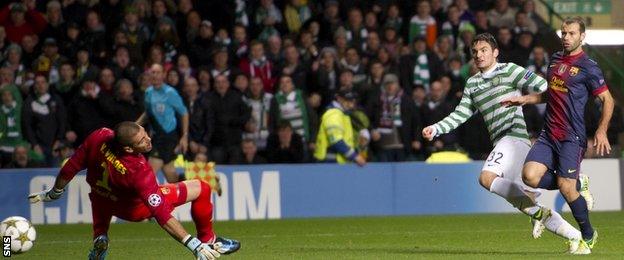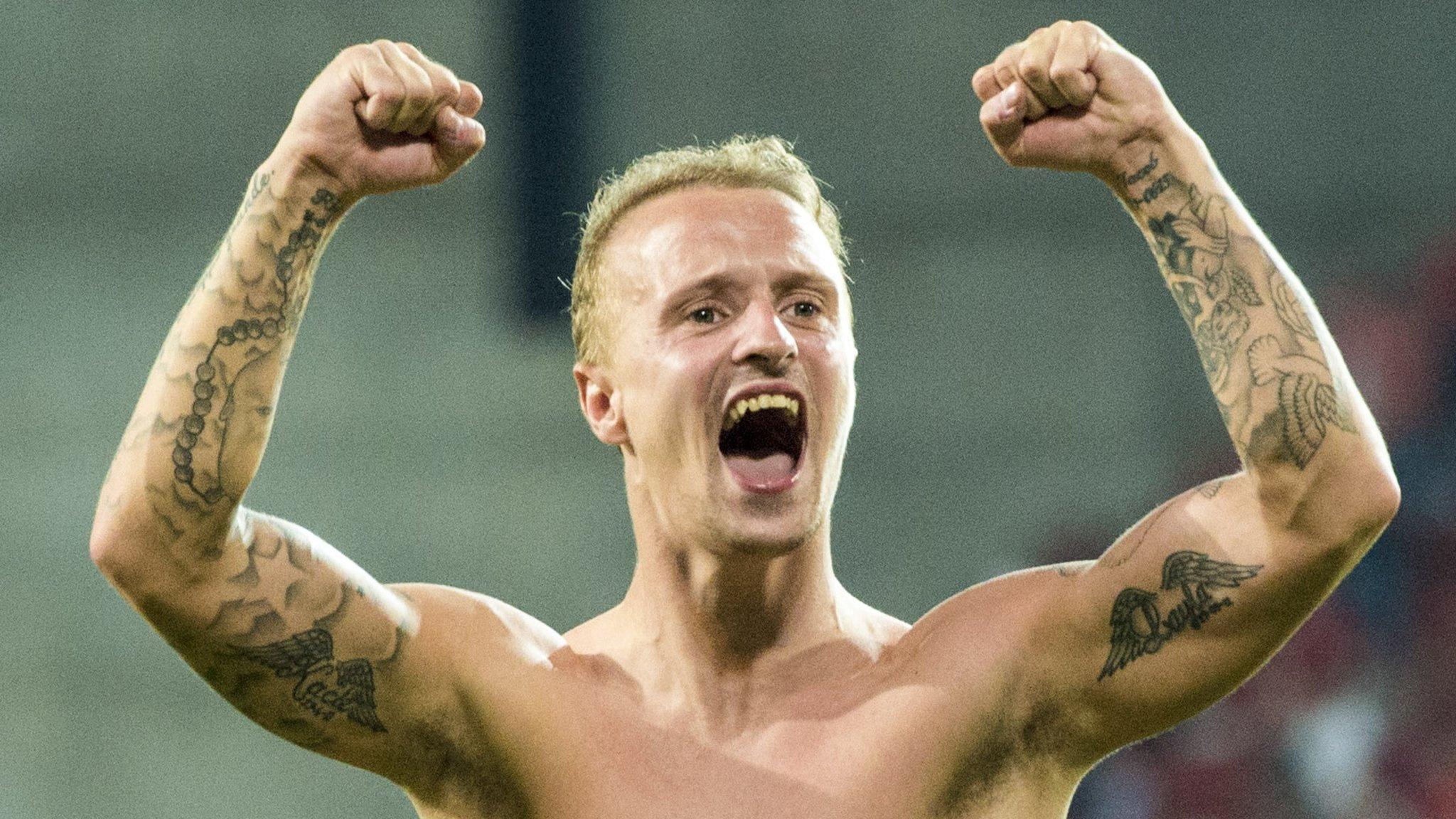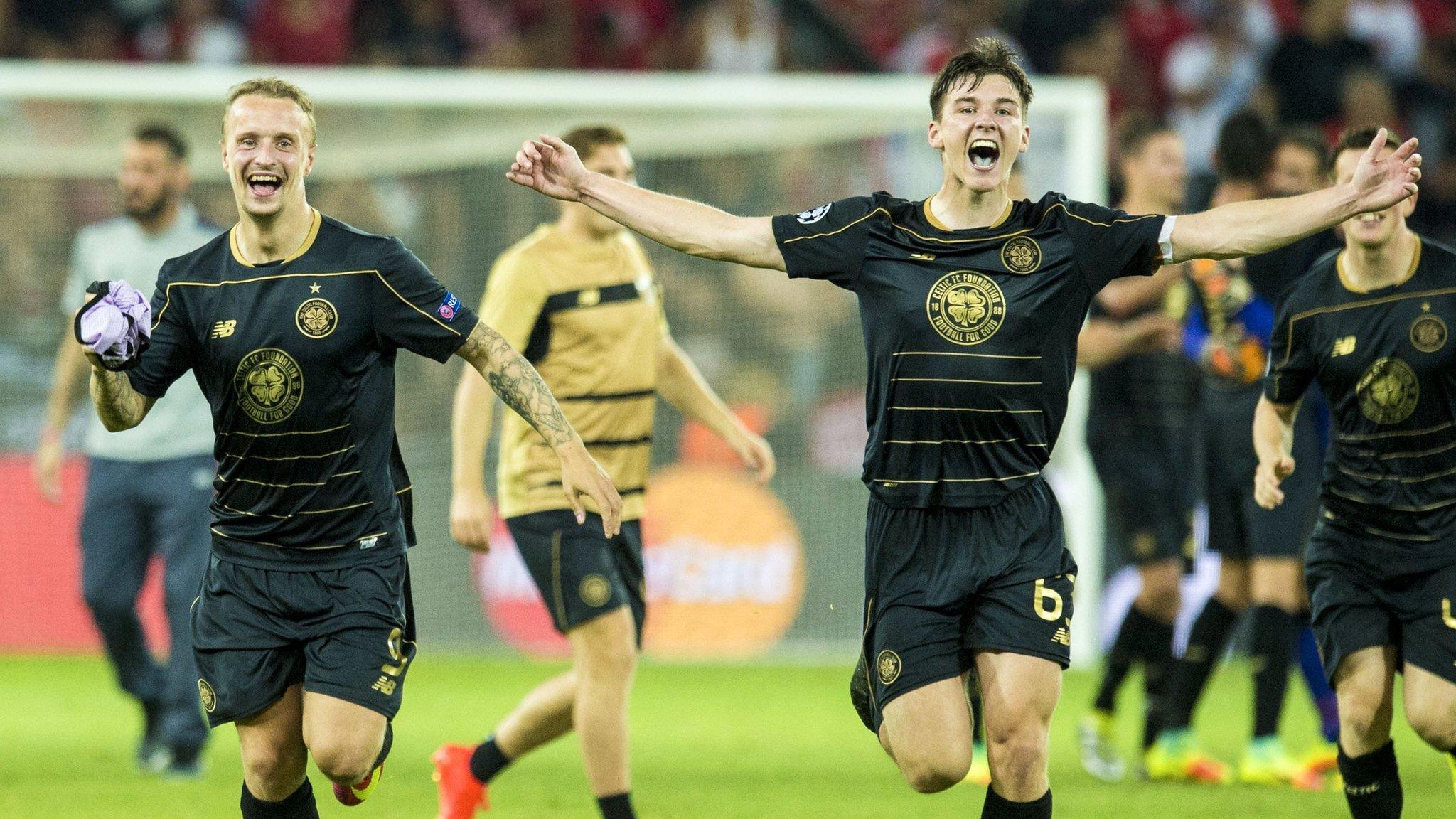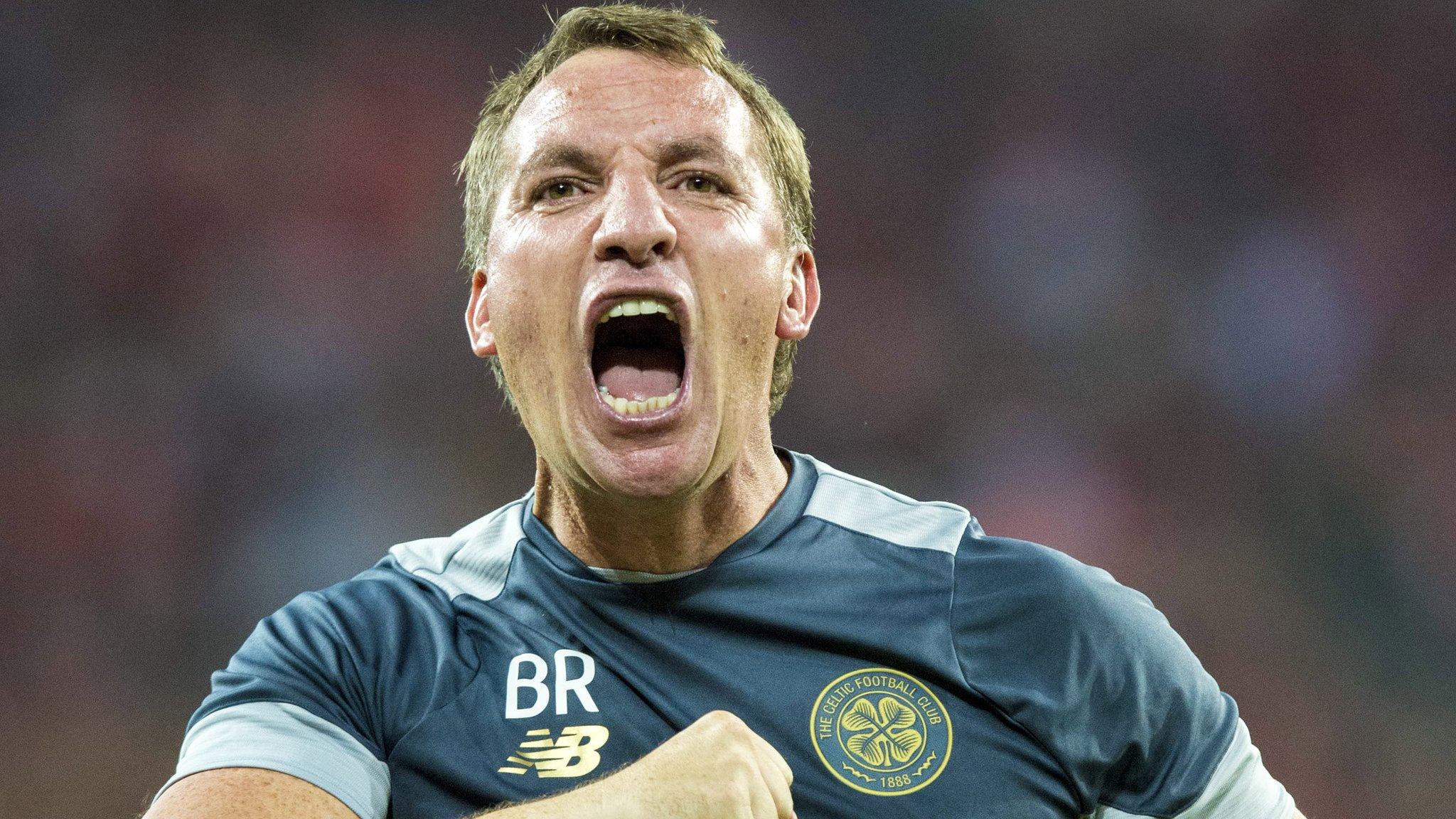Celtic face stark challenge of Champions League elite
- Published

Celtic qualified for the Champions League group stage with an aggregate win over Hapoel Beer Sheva
Celtic will feel empowered by their return to the group stage of the Champions League.
It is a source of status and wealth, with qualification alone worth around £30m, but the competitive challenge is also significantly greater.
The Scottish champions are likely to be in pot four of Thursday's draw and in football and financial terms, the strengths of teams from Spain, England, Germany, Italy, Portugal, France, Russia, Switzerland and Ukraine are clear enough.
History also emphasises the stark task Celtic face, though.
Champions route delivers frustration
The champions route was introduced to the qualifying rounds in season 2009-10, essentially to make the group stage more accessible to the league winners from smaller nations.
Champions would face each other in the final play-off round, instead of meeting third or fourth-placed teams from the larger, wealthier leagues.
Odds are stacked against the teams that qualify through the champions route, since the group stage is populated by clubs that either regularly appear in the Champions League or are well backed financially, or both. Even so, the statistics are daunting.
Since 2009-10, 35 teams have qualified through the champions route (10 of them making their first appearance in the group stage), with 25 going on to finish bottom of their group. A further six finished second bottom, while only four managed to reach the knock-out stages.
Champions League draw | |
|---|---|
Pot 1: Real Madrid, Barcelona, Leicester City, Bayern Munich, Juventus, Benfica, Paris St-Germain, CSKA Moscow | Pot 2: Atletico Madrid, Borussia Dortmund, Arsenal, Manchester City, Sevilla, Porto, Napoli, Bayer Leverkusen |
Pot 3: Basel, Tottenham Hotspur, Dinamo Kiev, Olympique Lyon, PSV Eindhoven, Sporting Lisbon, Club Brugge, Borussia Monchengladbach | Pot 4: Celtic, Monaco, Besiktas, Legia Warsaw, Ludogrets Razgrad, Copenhagen, Rostov, Dinamo Zagreb |
Of the four that made it out of the group stage, APOEL are the only side to win their round of 16 tie, beating Lyon in February 2012 then being knocked out in the quarter-finals 8-2 on aggregate by Real Madrid.
Celtic's ambitions do not merely lie in reaching the group stage and there is room for optimism. They are, after all, the last club to progress through the champions route and then reach the knock-out stage.
In 2012-13, Neil Lennon's side eliminated play-off opponents Helsingborg, then defeated Barcelona and Spartak Moscow during the group stage on their way to finishing second behind Barca. They were drawn against Juventus in the round of 16 but lost that tie 5-0 on aggregate.
The competition has become more fraught for champions route clubs over time, though, with the 10 teams that qualified during the last two seasons all finishing bottom of their respective groups. Between them, those 10 teams played 60 group stage games and won only six.
Change is coming
The format of the Champions League is under review. Clubs discussing change are driven by different motives, but the loudest voices around the table will not be those from the smaller nations in Europe.
Money is at the root of potential restructuring. The leading Italian, Spanish and French clubs are concerned by the wealth generated in England's Premier League, principally by its television deals, and talks have centred on raising the value of the commercial contracts of the Champions League.
Under the previous Uefa president, Michel Platini - who instigated the champions route - the competition was made more accessible to clubs outside the major leagues.
The view amongst some of the elite clubs, though, is that a more accessible competition is less commercially attractive, with the poor viewing figures for a group stage tie between Real Madrid and BATE Borisov in 2008-09 often cited.

Celtic qualified from their group in season 2012-13, a famous win over Barcelona helping their cause
The European Club Association is holding a board meeting in Monaco on Thursday, where the Champions League draw is being held, followed by a meeting of the Uefa Club Competitions Committee. The format of the Champions League from 2018-21 is at the top of the agenda, while commercial deals will also be signed.
The ECA will finalise proposals for their general assembly on 5-6 September, before providing their consultation to Uefa's extraordinary congress on 14-15 September, when Platini's successor will be appointed.
The format of the Champions League for 2018-21 will be formalised in December.
Several options are being considered, including amendments to the coefficient qualification formula to ensure more of the leading clubs from the elite five European nations qualify.
Other potential options being discussed are an enhanced league structure so there are more games considered attractive to global TV audiences - since one of the main drivers is pushing up the price of the TV rights - but also changing the group format so that the leading 16 teams enter after it.
For now, though, Celtic's focus is on the challenge of trying to progress from the group stage.
- Published24 August 2016

- Published24 August 2016

- Published23 August 2016

- Published14 January 2018
- Published7 June 2019
